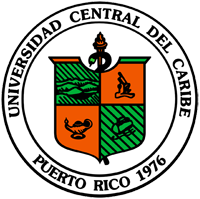Throughout its history, Universidad Central del Caribe (UCC) serves a varied student population, including individuals from different backgrounds and life experiences. The student body primarily consists of two groups: young adults pursuing graduate and professional degrees, and high school graduates completing undergraduate education. These groups represent a wide range of learners, enriching the UCC community.
Most recent developments in both graduate and undergraduate programs have resulted in an increase in non-traditional students, further enhancing the broad spectrum of the UCC community.
It is expected that these students will provide high-quality healthcare services to the communities they represent, positively impacting society. Moreover, the interactions among students, faculty, and staff foster the development of positive lifelong attributes.
The quality of education at UCC is reflected in the achievements of our students and graduates, who contribute to the growth of health sciences through research, education, and services. UCC remains committed to providing a welcoming and supportive educational environment for all students.
